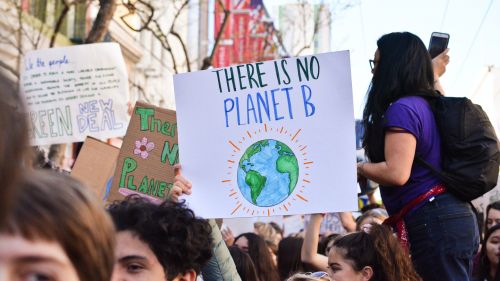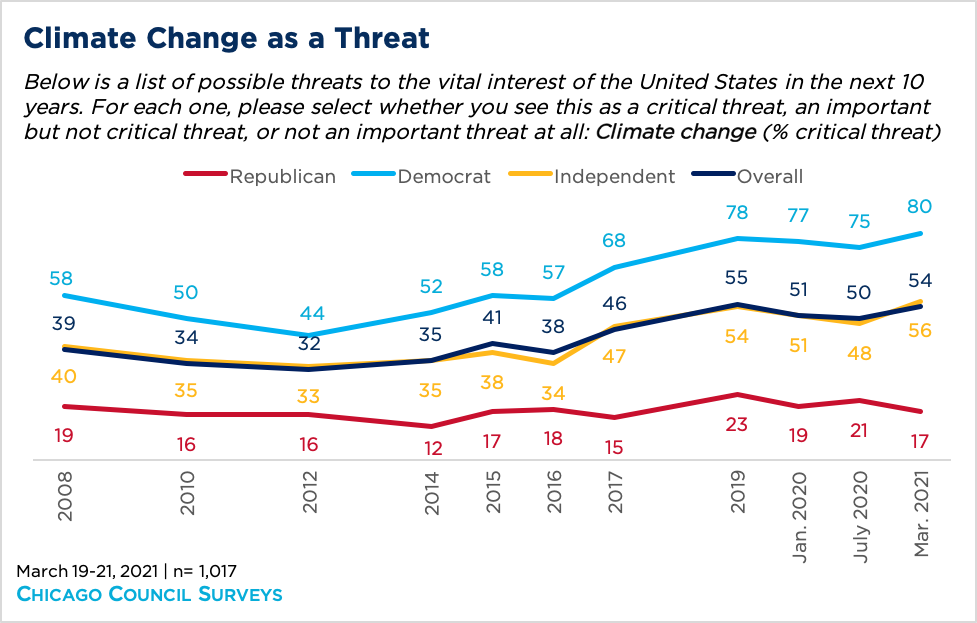As the World Celebrates Earth Day, Americans are Divided on the Threat of Climate Change

Council surveys find an American public split on the threat of climate change but open to cooperative efforts to limit its effects.
Countries across the globe are celebrating Earth Day today with virtual events, awareness campaigns, and community cleanup programs. Regarded as the most widely-observed secular holiday in the world, this year’s theme focuses on “Restoring Our Earth” by rebuilding natural ecosystems and prioritizing emerging green technologies.
Central to every Earth Day is a discussion of the effects of climate change and the appropriate global response. And, as President Biden conducts a global leaders climate summit today and tomorrow, climate change policy is sure to be on many Americans’ minds.
Recent survey analysis from the 2020 Chicago Council on Global Affairs reveals an American public that is largely divided on the threat of climate change. In March of this year, a slight majority of Americans (54%) said they think climate change is a critical threat to the vital interests of the United States in the next 10 years. Party affiliation appears to be an important determinant in respondent’s views – a majority of Democrats (80%) view climate change as a critical threat compared to a minority of Republicans (17%) who say the same.

When asked about cooperative opportunities to limit the effects of climate change, Democrats and Republicans are closer in agreement. Majorities of both Democrats (93%) and Republicans (75%) agreed with the statement that international cooperation is the only way to make progress solving problems like climate change and pandemics.
A cooperative sentiment also exists in climate policy with China. Just before the United States and China agreed to cooperate to curb climate change this month, three out of four Americans (75%) said they would support a policy to work with China on this global issue. Democrats (87%) responded in support of climate cooperation at a higher rate compared to Republicans (55%).
Public opinion in the United States suggests a positive response to cooperating with China on climate; however, Chinese support for cooperation is another matter. According to several reports, the United States has lost credibility in addressing climate change after dropping out of the Paris climate agreement and may face resistance from an emboldened China hoping to assert itself as a global leader on climate issues.